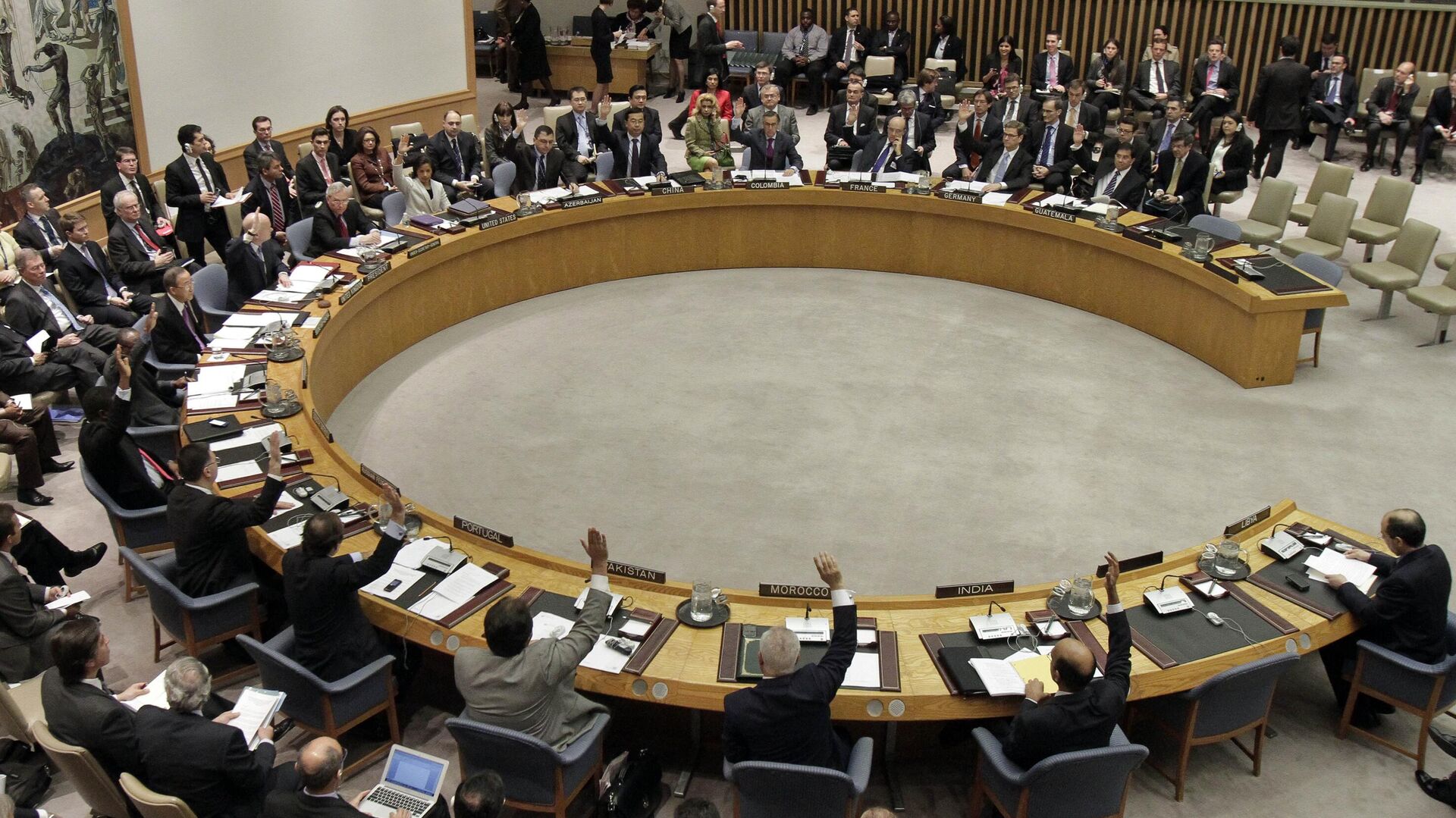https://sputnikglobe.com/20230404/over-3700-acres-of-land-in-libya-contaminated-with-explosive-ordnance-1109130925.html
Over 3,700 Acres of Land in Libya Contaminated With Explosive Ordnance
Over 3,700 Acres of Land in Libya Contaminated With Explosive Ordnance
Sputnik International
More than 15 million square meters (3,700 acres) of land in Libya are contaminated with unexploded ordnance and mines, the United Nations Support Mission in Libya (UNSMIL) said on Tuesday.
2023-04-04T22:35+0000
2023-04-04T22:35+0000
2023-04-04T22:35+0000
world
libya
united nations support mission in libya (unsmil)
https://cdn1.img.sputnikglobe.com/img/07e7/04/04/1109130768_0:195:2951:1854_1920x0_80_0_0_75c322a6b3e91621d31fe5afa72a0edc.jpg
UNSMIL's statement was timed to coincide with International Day for Mine Awareness and Assistance in Mine Action, observed on April 4. According to the mission, 19 people were killed by explosive devices in 2022, 14 of whom were children. "Despite strong efforts from mine action partners over the past decade, more than 15 million square metres are still contaminated with explosive ordnances across Libya. The indiscriminate use of weapons in civilian areas during the recent conflicts means even urban areas are littered with explosive remnants of war," the mission's statement said. Such remnants impede safe access to education, health care and development and cause death or injury long after hostilities have ceased, posing a daily threat to life, UNSMIL added. According to UNSMIL, 27,400 explosive ordnance were cleared in the cities of Tripoli, Misrata, Benghazi and Sirte in 2022. Libya is currently ruled by two rival governments. The western part of the country is controlled by the Government of National Unity and Prime Minister Abdul Hamid Al-Dbeibeh, which is supported by the UN. The eastern part is under the Government of National Stability, led by Prime Minister Fathi Bashagha. The southern part of the country is in turmoil due to civil unrest, the continuing threat of terrorism, and armed tribal violence.
libya
Sputnik International
feedback@sputniknews.com
+74956456601
MIA „Rossiya Segodnya“
2023
Sputnik International
feedback@sputniknews.com
+74956456601
MIA „Rossiya Segodnya“
News
en_EN
Sputnik International
feedback@sputniknews.com
+74956456601
MIA „Rossiya Segodnya“
Sputnik International
feedback@sputniknews.com
+74956456601
MIA „Rossiya Segodnya“
united nations support mission in libya, unsmil, libya, unexploded mines
united nations support mission in libya, unsmil, libya, unexploded mines
Over 3,700 Acres of Land in Libya Contaminated With Explosive Ordnance
MOSCOW (Sputnik) - More than 15 million square meters (3,700 acres) of land in Libya are contaminated with unexploded ordnance and mines, the United Nations Support Mission in Libya (UNSMIL) said on Tuesday.
UNSMIL's statement was timed to coincide with International Day for Mine Awareness and Assistance in Mine Action, observed on April 4. According to the mission, 19 people were killed by explosive devices in 2022, 14 of whom were children.
"Despite strong efforts from mine action partners over the past decade, more than 15 million square metres are still contaminated with explosive ordnances across Libya. The indiscriminate use of weapons in civilian areas during the recent conflicts means even urban areas are littered with explosive remnants of war," the mission's statement said.
Such remnants impede safe access to education, health care and development and cause death or injury long after hostilities have ceased, posing a daily threat to life, UNSMIL added.
"Mine action efforts are an essential component of Libya’s journey to peace and stability coupled with reforms in the security sector to control explosive ordnance contamination and the proliferation of weapons,” the mission quoted UN envoy to Libya Abdoulaye Bathily as saying.
According to UNSMIL, 27,400 explosive ordnance were cleared in the cities of Tripoli, Misrata, Benghazi and Sirte in 2022.
Libya is currently ruled by two rival governments. The western part of the country is controlled by the Government of National Unity and Prime Minister Abdul Hamid Al-Dbeibeh, which is supported by the UN. The eastern part is under the Government of National Stability, led by Prime Minister Fathi Bashagha. The southern part of the country is in turmoil due to civil unrest, the continuing threat of terrorism, and armed tribal violence.


